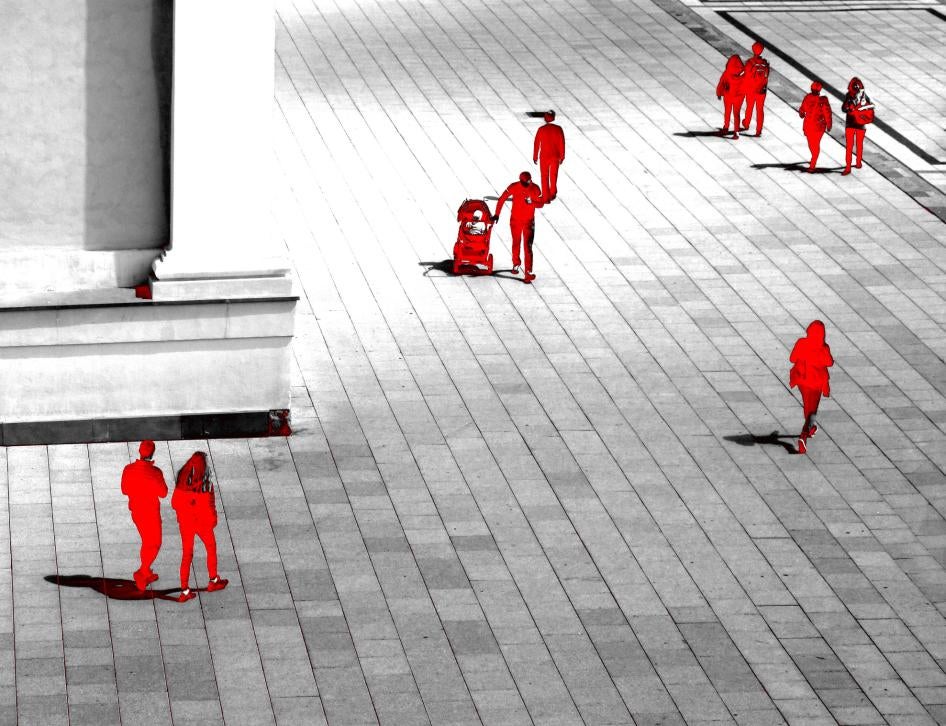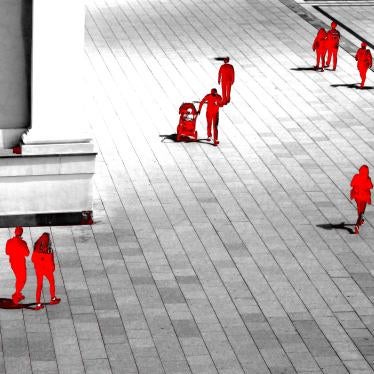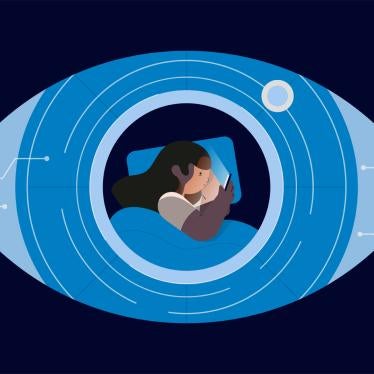(New York) – The mobile location tracking programs governments are using in the fight against Covid-19 pose serious risks to human rights, Human Rights Watch said in a detailed Q&A released today. The programs, whose utility in controlling the pandemic has yet to be proven, may introduce unnecessary and disproportionate surveillance measures in public health disguise.
Entitled “Mobile Location Data and Covid-19,” the Q&A examines the different ways that governments are using geolocation and proximity information from mobile phones and other devices and the risk they pose to privacy rights. It looks at how this technology has been used by China, Israel, South Korea, the United States, and other governments, and provides recommendations and guidelines to evaluate the human rights risks posed by any given tool or program using mobile location data.
“Some restrictions on people’s rights may be justifiable during a public health emergency, but people are being asked to sacrifice their privacy and turn over personal data for use by untested technologies,” said Deborah Brown, senior digital rights researcher at Human Rights Watch. “Containing the pandemic and reopening society are essential goals, but we can do this without pervasive surveillance.”
While protecting human life and public health is a paramount concern of policymakers everywhere, Human Rights Watch warned that governments and the private sector should not promote or use unproven and untested technology. The long history of emergency measures shows that when surveillance is introduced, it usually goes too far, fails to meet its objectives, and once approved, often outlasts its justification. Mobile tracking programs intended to be temporary measures until the pandemic is under control and a vaccine is available may become permanent features of an expanded surveillance regime.
Excessively compromising privacy is a gateway to undermining other rights, such as freedom of movement, expression, and association. Mobile phone network data analysis creates granular, real-time targeting opportunities, which can be used by governments to enforce draconian quarantine measures. This is particularly problematic in the absence of transparent and meaningful limits on data collection, retention, and use. In the hands of governments that already have intrusive surveillance practices, such as China and Russia, this can magnify discrimination and repression.
Human Rights Watch also cautioned that over-reliance on mobile location tracking for Covid-19 responses could exclude marginalized groups who may not have reliable access to the internet and mobile technology, putting their health and livelihoods at risk. Some communities, such as migrant workers, refugees, and homeless people, live in cramped conditions that would undermine accuracy of contact tracing apps. Others that have suffered decades of abusive surveillance and repression may be very skeptical of these tracking technologies.
“Mobile tracking solutions create a two-tiered response to the pandemic that threatens to leave the poorest and most vulnerable people behind,” said Amos Toh, senior researcher on artificial intelligence and human rights. “Without meaningful input from minorities and other marginalized groups, tech-driven responses may reinforce systemic inequalities facing those hardest hit by the virus.”
There are serious questions as to whether the use of Covid-19 tracking initiatives can meet the international human rights standards of necessity and proportionality. Human Rights Watch said governments should first address the more fundamental question of whether such technologies are scientifically justified before using them or whether they may misrepresent an individual’s risk of infection or mislead the public. They should also assess whether there are ways to combat the pandemic that are less intrusive on rights, including proven containment methods such as manual contact tracing and expanding access to accurate testing and treatment.
“Before turning to data-driven technologies, we have to ask the basic questions: Will it work? And at what cost to our freedoms and health?” said Brown. “Time is of the essence, but a pandemic is no time to move fast and break things.”









